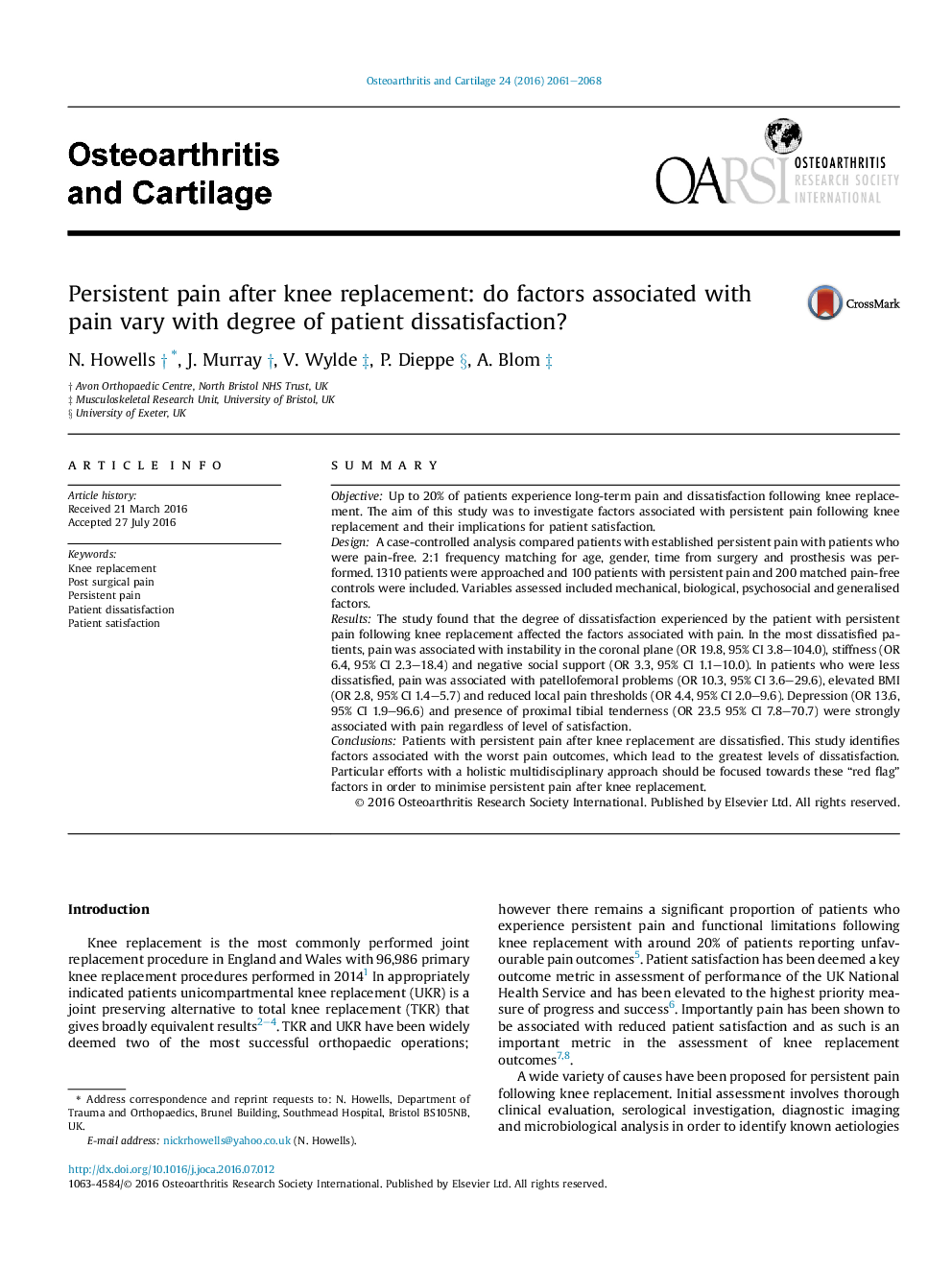| Article ID | Journal | Published Year | Pages | File Type |
|---|---|---|---|---|
| 5669329 | Osteoarthritis and Cartilage | 2016 | 8 Pages |
SummaryObjectiveUp to 20% of patients experience long-term pain and dissatisfaction following knee replacement. The aim of this study was to investigate factors associated with persistent pain following knee replacement and their implications for patient satisfaction.DesignA case-controlled analysis compared patients with established persistent pain with patients who were pain-free. 2:1 frequency matching for age, gender, time from surgery and prosthesis was performed. 1310 patients were approached and 100 patients with persistent pain and 200 matched pain-free controls were included. Variables assessed included mechanical, biological, psychosocial and generalised factors.ResultsThe study found that the degree of dissatisfaction experienced by the patient with persistent pain following knee replacement affected the factors associated with pain. In the most dissatisfied patients, pain was associated with instability in the coronal plane (OR 19.8, 95% CI 3.8-104.0), stiffness (OR 6.4, 95% CI 2.3-18.4) and negative social support (OR 3.3, 95% CI 1.1-10.0). In patients who were less dissatisfied, pain was associated with patellofemoral problems (OR 10.3, 95% CI 3.6-29.6), elevated BMI (OR 2.8, 95% CI 1.4-5.7) and reduced local pain thresholds (OR 4.4, 95% CI 2.0-9.6). Depression (OR 13.6, 95% CI 1.9-96.6) and presence of proximal tibial tenderness (OR 23.5 95% CI 7.8-70.7) were strongly associated with pain regardless of level of satisfaction.ConclusionsPatients with persistent pain after knee replacement are dissatisfied. This study identifies factors associated with the worst pain outcomes, which lead to the greatest levels of dissatisfaction. Particular efforts with a holistic multidisciplinary approach should be focused towards these “red flag” factors in order to minimise persistent pain after knee replacement.
